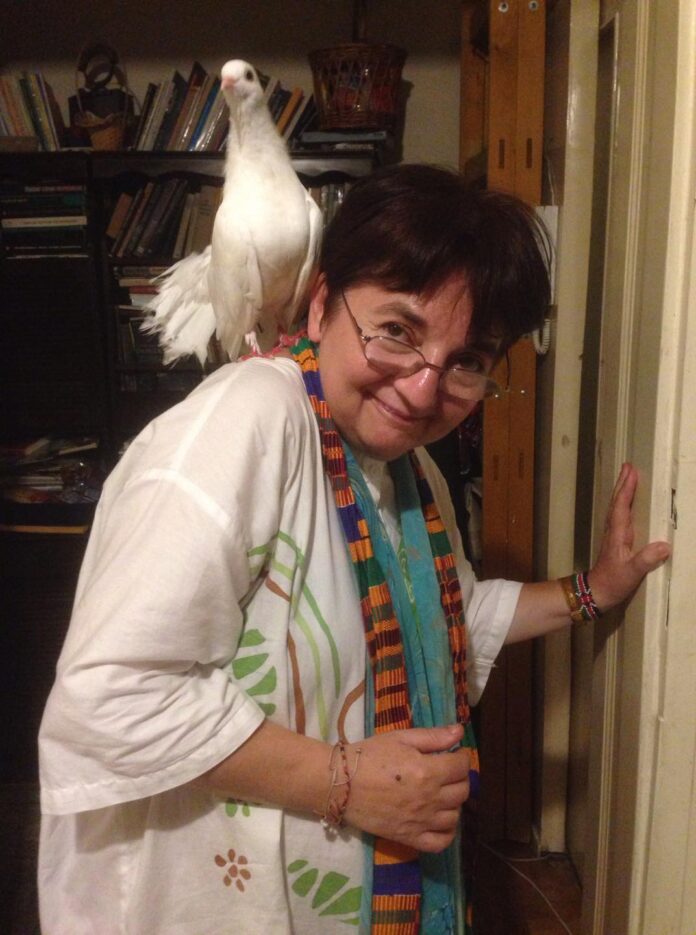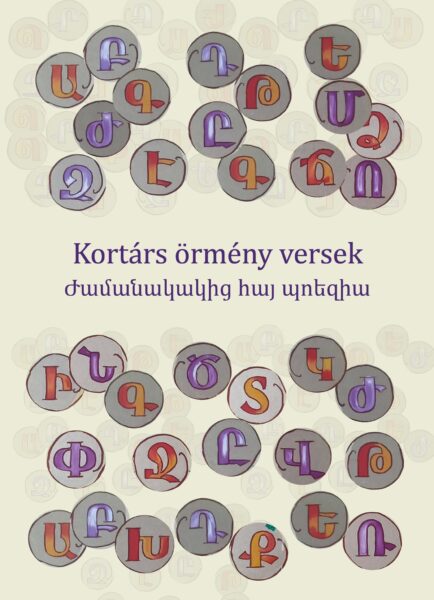YEREVAN/BUDAPEST — Recently Lector Publishing House of Transylvania published the bilingual (Armenian-Hungarian) anthology, Contemporary Armenian Poetry, initiated by the Hungarian-Armenian Alliance of Transylvania. It includes poems by 18 Armenian authors, writing in Armenian and other languages. Eva Blénesi is the editor and the author of the afterword of the volume.
Blénesi, 64, is a literary critic and political scientist of Hungarian-Armenian origin. In 1989, she moved from Transylvania to Hungary with her parents. Blénesi studied at Babeș–Bolyai University in Kolozsvár (Cluj–Napoca, Romania), specializing in Hungarian and English literature, and also at Cambridge University (Great Britain), specializing in global security issues. She received her PhD from the Department of Humanities at the University of Szeged, Hungary. She is the author of several academic volumes and articles. Some of her works have been translated into Armenian, English, French, Romanian and Bulgarian. In addition to her teaching and research activities, Blénesi is actively involved in photography, making also short documentaries and painting on glass and silk.
Dear Eva, first let me congratulate you about you newly-published anthology of contemporary Armenian poetry. Whose idea was it and who supported the realization of the project?
Thank you, Dear Artsvi. The credit is not mine alone at all, but it belongs to all of us who contributed to the realization of this project including the publishers, the printers, the cover designers and the language lecturers. First of all, it belongs to the authors as well as the translators, who have a highlighted position in this regard seemingly also to those — like my Ciróka cat for instance — who helped keep the creative spirit alive in extreme challenging circumstances: Covid 19, the renewed conflict is Artsakh, tragic human losses (Armen Shekoyan, Géza Szőcs), illnesses and accidents in my case (fighting back a malignant tumor with a lymph metastasis, the painful Sudeck-syndrome caused by my broken right wrist), the unprecedented rise of the price of the paper caused by the war among the others. But from a retrospective point of view, I consider that all these challenges played also a positive role in my life in terms of better understanding the Armenianness, if I may say so. Since there are a library-length bunch of poems in Armenian literature that speak in a wide register of all that is the innermost characteristic of the Armenian spiritual setting: even after the losses and suffering, there is always the search for a way out, after the destruction there is the new beginning and the pervasive power of creation. One of the possible books in this library is this verse anthology. Therefore, I don’t think that I have exaggerated in the Afterword while saying that it is the merit of the excellence of poets and their inspired translators to feel that every book is the book of books and every poem is the song of songs. As for myself, as an editor, I like to associate myself with the role of the conductor from the Simple Symphony by Benjamin Britten, where every instrument from the orchestra has a solo role, an added value to the whole. However, the idea of setting up the current book project came from Géza Szőcs, an excellent poet about whom I wrote my first monograph back in 1999. He initiated the anthology not only in the capacity of the president of the Hungarian PEN Club, but also as a former state secretary of Cultural Affairs who lobbied for the re-establishment of the deteriorated Armenian-Hungarian diplomatic relations.
Why was the anthology published in Transylvania, Romania, rather than Hungary?
The main reason behind not publishing it in Hungary, but Transylvania was the unexpected tragic death of Géza Szőcs, the key promoter of the anthology who wanted to publish it within the framework of the Hungarian PEN Club. But after his death, his successors categorically refused to publish the Contemporary Armenian Poetry by arguing that the Hungarian PEN Club does not have the necessary funds for its publication. To be honest, I was even happy and felt a great relief when they initiated breaking the contract with me, since none of Géza Szőcs’s successors measured up to his intellectual level and cosmopolitan views. The shallow spirit they represent which is very much in line with those who are in key positions nowadays in the field of culture is very far from my system of values, therefore I can only be grateful to God and incorporate in my everyday evening prayers that nobody can associate me with them. Thus, like so many times throughout my life, I managed to turn the disadvantage into an advantage when it came to my mind to ask Attila Puskás, president of the EMÖSZ (Association of the Hungarian Armenians from Transylvania) to apply for funds in Hungary and publish it. It appeared that I was knocking at open doors and his Association got a modest sum from Gábor Bethlen Fund provided by the Prime Minister’s Office for National Secretariat. Indeed, Transylvania is part of Romania after the Trianon Treaty. Both Hungarians and Romanians claim to be their cradle, but what really matters is that Erdély/Ardeal/ Translyania/Siebenbürgen, is a colorful spot in the big mosaic within Romania with a great variety of rich multicultural, multireligious and multinational heritage and a landscape of breathtaking beauty.









